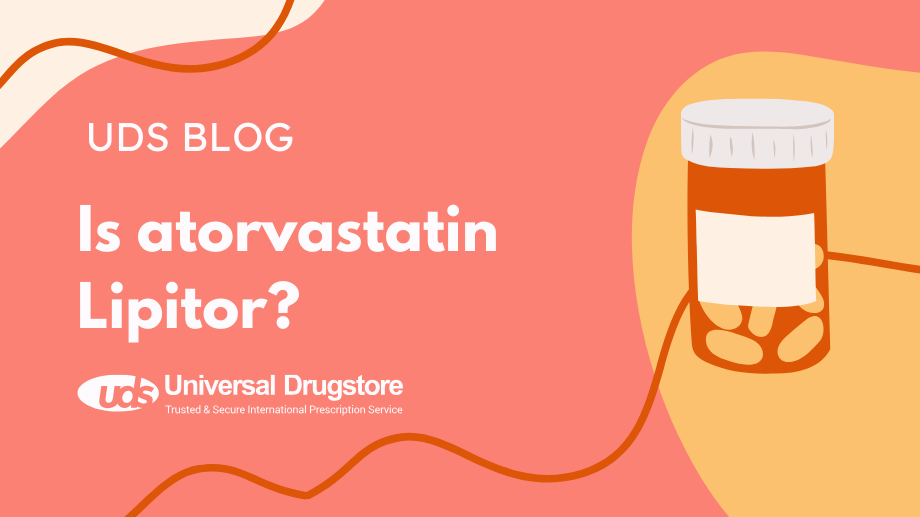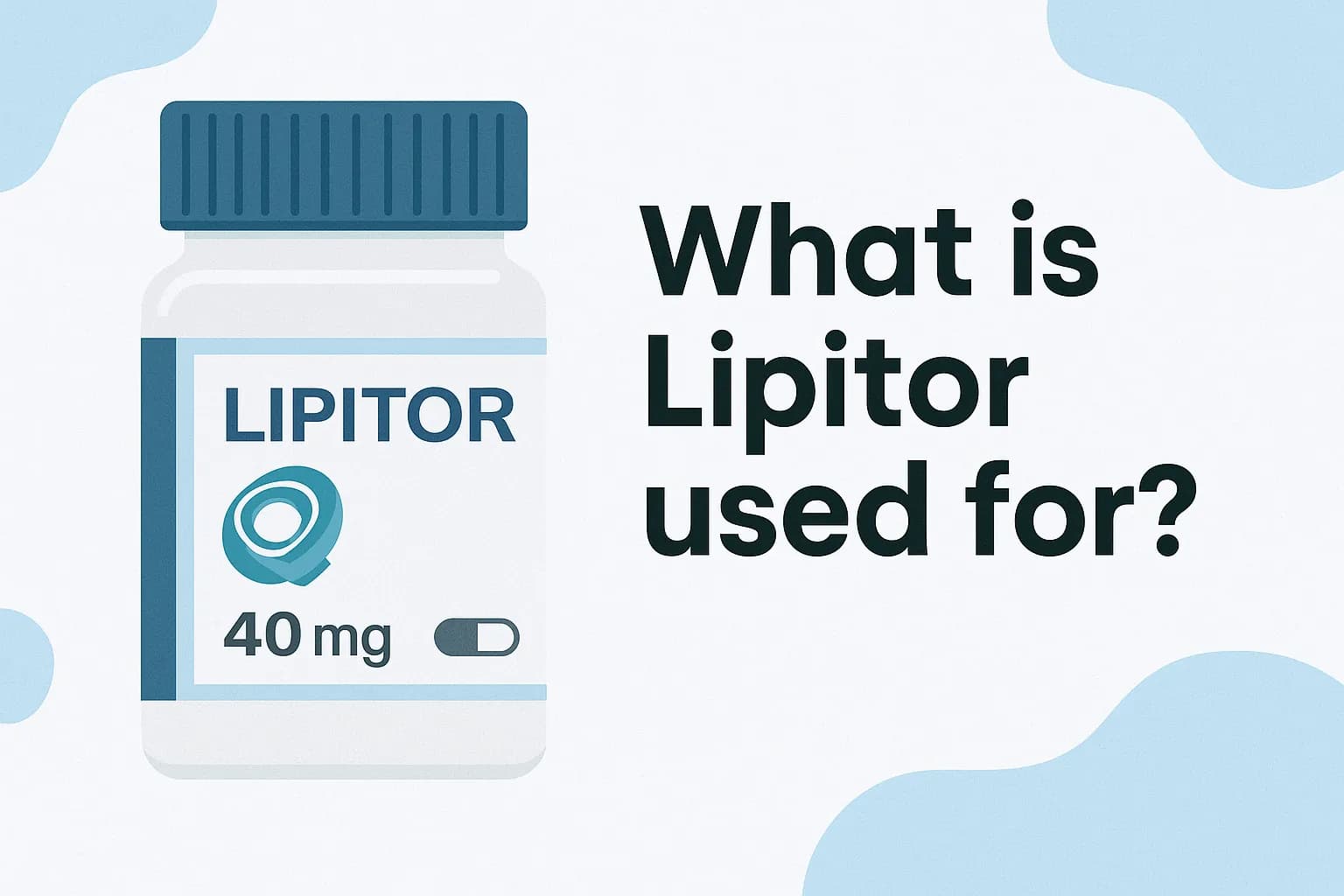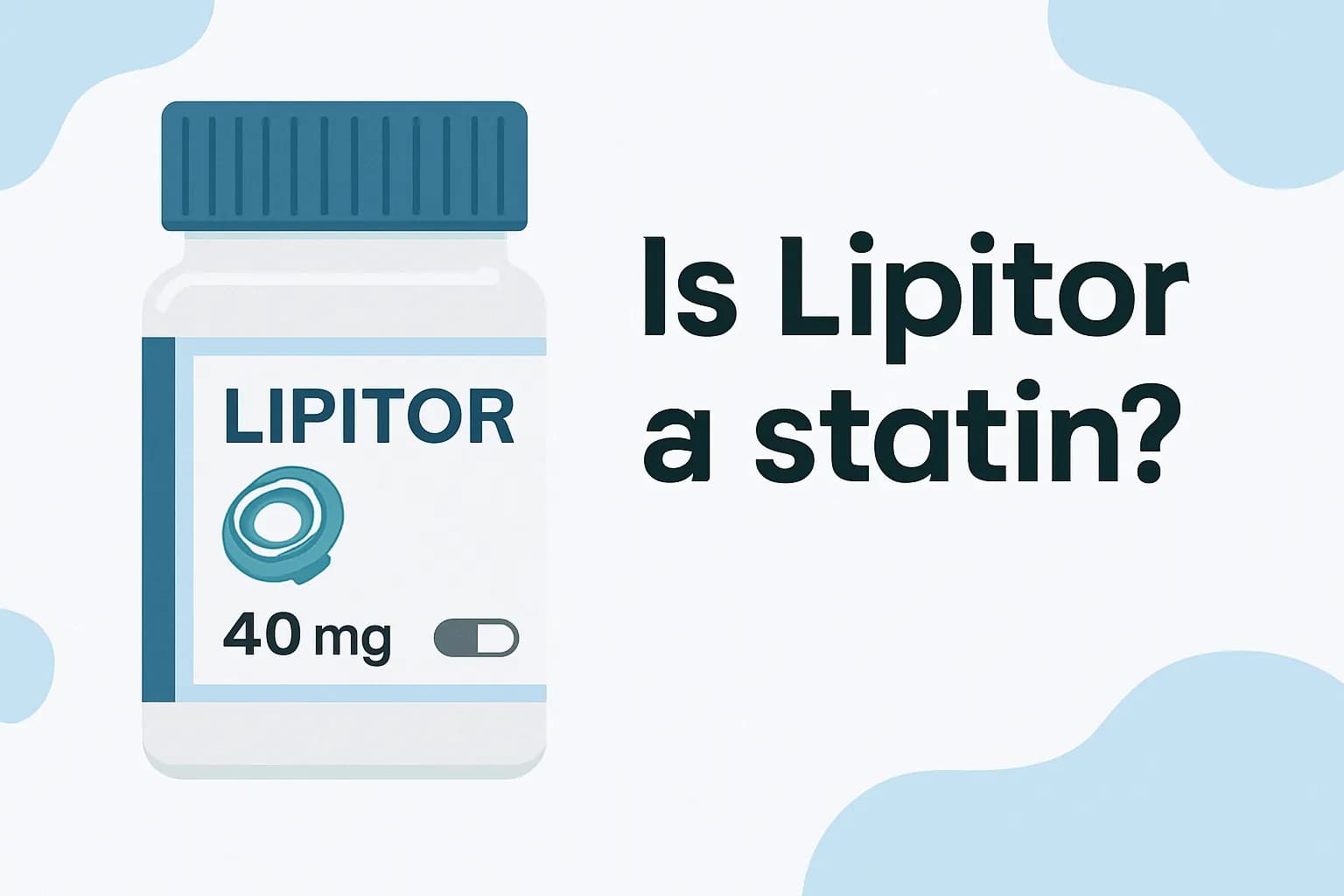Is atorvastatin Lipitor?

Lipitor is a brand-name drug that contains the active ingredient atorvastatin, which is also available as a generic medication. Lipitor was approved by the U.S. Food and Drug Administration (FDA) in 1997 to treat patients with high cholesterol (hyperlipidemia). Since then, it has gone on to be one of the most prescribed medications in the world. In December 2011, Ranbaxy Pharmaceuticals got approval for the first generic version of Lipitor.
So are generic medications the same as their brand-name counterparts? FDA-approved generic medications work in the same way and provide the same benefits and risks as the brand-name version. A generic medication is required to be the same as a brand-name drug in safety, dosage, strength, effectiveness, quality, and stability, as well as how it’s taken. The FDA follows a rigorous review process to make sure that these requirements are met. In addition, the FDA inspects the facilities to ensure the generic manufacturing, packaging, and testing sites pass the same quality standards as those of brand-name medications. So while the medications are the same, generics such as atorvastatin are typically a lot cheaper than the brand-name drug.
Read on to learn more about what atorvastatin is used for, its side effects, and precautions, and we will answer some frequently asked questions.
Atorvastatin FAQs
What does atorvastatin treat?
- To reduce the risk of heart attack, stroke, chest pain, and certain types of heart surgery in adults who don’t have heart disease but have other risk factors for heart disease.
- To reduce the risk of heart attack and stroke in adults with type 2 diabetes who do not have heart disease but have other risk factors for heart disease.
- To reduce the risk of heart attack that does not cause death, stroke, certain types of heart surgery, hospitalization for congestive heart failure (CHF), and chest pain (angina) in adults with heart disease.
- Along with diet to reduce low-density lipoprotein cholesterol (LDL-C) or bad cholesterol in adults. It is also used to treat adults and children 10 years of age and older with heterozygous familial hypercholesterolemia and homozygous familial hypercholesterolemia. These are inherited conditions that can cause high bad cholesterol levels.
- Along with diet for the treatment of adults with high triglyceride levels.
What are some common side effects of atorvastatin?
- Common cold symptoms such as runny nose or sore throat
- Joint pain
- Diarrhea
- Pain in arms and legs
- Increased risk of urinary tract infections (UTI)
- Indigestion
- Nausea
- Muscle pain or weakness (myopathy)
- Insomnia (trouble sleeping)
- Constipation
- Memory loss or impairment, forgetfulness, and confusion
What is the most serious side effect of atorvastatin?
Rarely, statins such as atorvastatin can cause a serious and possible life-threatening muscle problem called rhabdomyolysis. Rhabdomyolysis can lead to extreme muscle pain, liver damage, kidney failure, and death. Your risk of rhabdomyolysis is increased if you take certain medications that can raise the levels of atorvastatin in your body. Other risk factors that can increase your risk of this complication include drinking or consuming grapefruit or grapefruit juice, uncontrolled thyroid disease, kidney problems, being 65 years of age or older, and taking higher doses of atorvastatin. If you develop symptoms of rhabdomyolysis, including severe muscle pain, dark-colored urine, weakness, and tiredness, stop taking this medication and seek medical attention immediately.
Some other serious side effects that may occur with atorvastatin include:
- Serious, life-threatening allergic reactions, including anaphylaxis.
- Increased risk of liver problems.
- Increased blood sugar.
- Possible harm to unborn and breastfed babies.
These are not all of the possible adverse events of atorvastatin. You should always seek medical advice from a healthcare professional for any questions or concerns about your medical condition or treatment. You should also read all the patient information, including your Medication Guide that comes with atorvastatin. You can report side effects to the FDA at 1-800-FDA-1088 or www.fda.gov/medwatch.
How does atorvastatin work to reduce cholesterol levels?
Atorvastatin calcium belongs to the drug class called HMG-CoA reductase inhibitors (statins). It works by blocking the enzyme (HMG-CoA reductase) in your liver that regulates cholesterol production. This helps lower your bad cholesterol or low-density lipoprotein (LDL). It can also raise your good cholesterol or high-density lipoprotein (HDL) levels and lower your triglyceride levels. By lowering your bad cholesterol and increasing your good cholesterol, this can help reduce your risk of heart attack and stroke.
What should you tell your healthcare provider before taking atorvastatin?
- Any unexplained muscle aches or muscle weakness
- Liver disease
- Drinking more than 2 alcoholic beverages daily
- Diabetes
- Thyroid disease
- Kidney disease
- A previous stroke
- If you are pregnant or plan to become pregnant
- If you are breastfeeding or plan to breastfeed
Shop Medications
Can atorvastatin be taken with other medications?
Tell your healthcare provider about all your current medications to see if they may cause drug interactions, including:
- Other cholesterol-lowering medications such as gemfibrozil, fenofibrate, and niacin
- Colchicine
- Antifungals or antibiotics such as rifampin, clarithromycin, erythromycin, ketoconazole, voriconazole, and itraconazole
- Birth control pills
- Immunosuppressants used to prevent organ transplant rejection such as cyclosporine
- Antiviral medications to treat HIV (saquinavir and ritonavir) or hepatitis C
Does atorvastatin make you gain weight?
Weight gain was not a reported side effect during clinical trials with atorvastatin. However, there may be a link between weight gain and statins such as atorvastatin. A 2018 clinical study looked at the effects statins have on leptin. Leptin is a protein found in fat tissue that helps you know when you are hungry and when you are full. The study showed that two statin medications, atorvastatin and simvastatin, reduced leptin secretion, which could make you feel hungrier than usual. This may lead to weight gain when using statins long-term. If you gain weight while taking atorvastatin, it could also be due to other factors such as lifestyle or reduced activity due to muscle pain. It is important to maintain a healthy weight while taking atorvastatin. Being overweight increases your risk of cardiovascular disease, heart attack, stroke, and diabetes.
How do you store atorvastatin?
Keep atorvastatin in the container it came in, tightly closed, and out of reach of children. Store it at room temperature between 68°F-77°F (20°C-25°C) and away from excess heat and moisture (not in the bathroom).
Will atorvastatin affect my birth control pills?
Atorvastatin may slightly increase the hormones released into your system from some birth control pills. They should still be effective at preventing pregnancy, but this could increase your risk of side effects from birth control pills. If you develop any side effects while taking these medications, contact your healthcare provider.
If atorvastatin causes severe diarrhea for more than 24 hours, your birth control pills may not work as well. Check the information that comes with your birth control pills to find out what to do if this happens.
Can you drink alcohol while taking atorvastatin?
While there is no drug interaction between alcohol and atorvastatin, you may want to limit how much you drink while on this medication. Drinking a lot of alcohol regularly increases the chance of having side effects such as diarrhea, indigestion, nausea, and confusion. Regular alcohol use is also linked to liver problems so this risk is increased if you drink while taking atorvastatin.
Related Medications
- Zocor (simvastatin)
- Zetia (ezetimibe)
- Vytorin (ezetimibe/simvastatin)
- Crestor (rosuvastatin)
- Livalo (pitavastatin)
- Pravachol (pravastatin)
- Mevacor (lovastatin)





